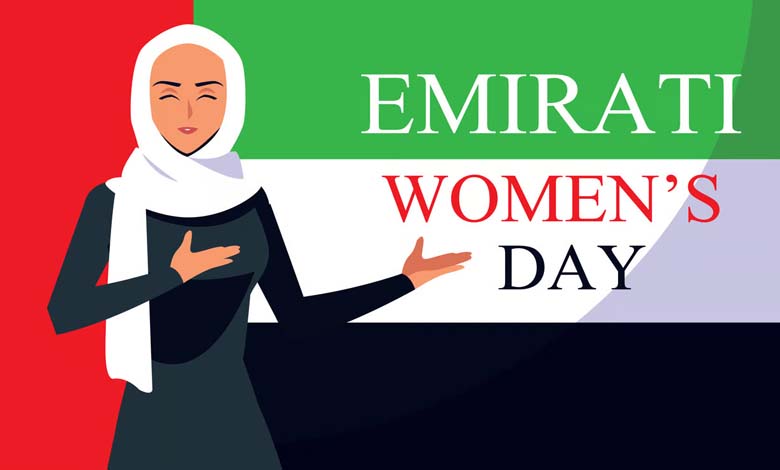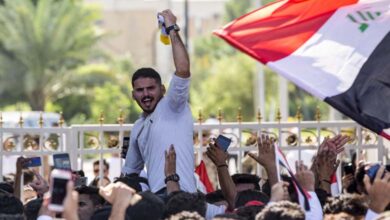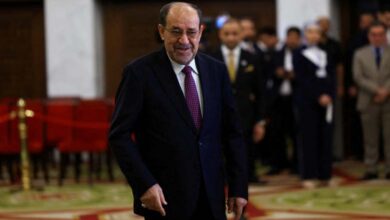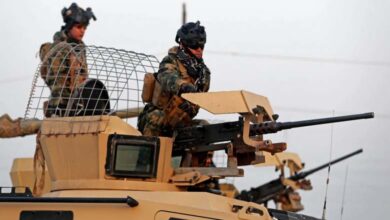Emirati Women’s Day: The World Reaps the Benefits of the Empowerment of the ‘Daughters of Zayed’

The celebration of Emirati Women‘s Day comes at a time when the “Daughters of Zayed” are reaping the benefits of their empowerment in various fields, politically, diplomatically, and in parliament.
-
On Emirati Women’s Day: How has the UAE supported women’s empowerment and unleashed their potential?
This empowerment has translated into reality, with Emirati women holding 9 ministerial seats and 50% of parliamentary seats, while they represent 43% of the workforce at the Ministry of Foreign Affairs.
These figures are among the highest in the world, reflecting the UAE leadership’s trust in women and their support for their participation in decision-making, contributing to development and prosperity.
A Continuous Journey
Emirati Women‘s Day, celebrated annually on August 28th, marks the ongoing journey of women’s empowerment across all fields. Just days ago, Noura Mohamed Jumaa presented her credentials to Edgars Rinkēvičs, President of Latvia, as the UAE Ambassador to Latvia, continuing the journey of UAE female ambassadors in building bridges of cooperation with allied and friendly countries, serving the UAE’s interests and strengthening its regional and international position.
This celebration also comes shortly after Lana Nusseibeh, Assistant Minister for Political Affairs, led the UAE delegation at the Sudan peace talks in Switzerland, held from August 14 to 23, which resulted in an agreement on practical steps for humanitarian aid access and the protection of civilians, continuing the significant role of UAE diplomats in enhancing their country’s position and policies for peace and security.
In the same context, this occasion is marked by Ghasaq Shahin, Deputy Permanent Representative of the UAE to the United Nations, delivering the UAE’s statement during the Security Council’s open debate on “The New Agenda for Peace,” continuing her role within the UAE’s permanent delegation at the UN.
Furthermore, this celebration follows a ministerial reshuffle on July 14, in which women retained all nine of their ministerial seats, reflecting the UAE leadership’s trust in women and their key role in development and future building.
In May, Mariam Majid bin Thania was elected president of the Parliamentary Forum for Women in the Mediterranean Parliament, underscoring the world’s recognition of Emirati women’s capabilities.
Ongoing Efforts
Whether as diplomats, ministers, or parliamentarians, Emirati women’s empowerment benefits not only the UAE but the world at large. They play a crucial role in implementing their country’s policies for peace, security, and dialogue.
9 Female Ministers
President Mohamed bin Zayed Al Nahyan is a strong supporter of women’s roles as key partners in development, following the path laid by the late Sheikh Zayed bin Sultan Al Nahyan.
In the latest cabinet reshuffle on July 14, Alia Abdullah Al Mazrouei was appointed as Minister of State for Entrepreneurship, while Sara Al Musallam exited as Minister of Early Childhood Education after a restructuring of the education sector.
As part of the restructuring, new responsibilities were assigned to women, including appointing Sheikha Mariam bint Mohamed bin Zayed as the head of the National Education Quality Center.
New Responsibilities and Trust
Assigning new responsibilities to women, such as Sheikha Mariam bint Mohamed bin Zayed and Sara Al Amiri in the education sector, reflects the UAE leadership’s trust in Emirati women’s abilities and their importance in shaping a brighter future for the country.
UAE’s female ministers retained all nine of their ministerial seats, maintaining their participation in the government at 25%, one of the highest rates globally.
The UAE government currently includes nine female ministers:
- Reem bint Ibrahim Al Hashimi, Minister of State for International Cooperation.
- Shamma bint Suhail Al Mazrouei, Minister of Community Development.
- Dr. Amina bint Abdullah Al Shamsi, Minister of Climate Change and Environment.
- Sarah bint Youssef Al Amiri, Minister of State for Education.
- Dr. Maytha bint Salem Al Shamsi, Minister of State.
- Ahood bint Khalfan Al Roumi, Minister of State for Government Development and the Future.
- Noura bint Mohammed Al Kaabi, Minister of State.
- Mariam bint Ahmed Al Hammadi, Minister of State and Secretary-General of the Council of Ministers.
- Aliya Abdullah Al Mazrouei, Minister of State for Entrepreneurship.

-
International Women’s Day.. UAE women’s accomplishments inspire Eve’s daughters
-
Supporting human rights… UAE initiatives inspire the world
Emirati Diplomats: Promoting Peace and Resolving Crises
In the diplomatic realm, the Ministry of Foreign Affairs and International Cooperation serves as a model for women’s empowerment.
In terms of numbers, women represent 43% of the total workforce at the Ministry of Foreign Affairs and International Cooperation, with about 12 female ambassadors or permanent representatives of the UAE, accounting for 11% of the country’s total number of ambassadors, which is the highest percentage among Arab countries.
The Ministry of Foreign Affairs and International Cooperation also includes 19 women in the positions of General Director or Deputy General Director.
-
Al-Ahram al-Arabi congratulates the UAE on the fiftieth anniversary of the union
-
Fictitious organizations try to disfigure the UAE internationally.. Who is behind it?
Additionally, the Ministry of Foreign Affairs and International Cooperation has two female ministers: Reem bint Ibrahim Al Hashimi, Minister of State for International Cooperation, and Noura bint Mohammed Al Kaabi, Minister of State.
To further empower women within the ministry, Noura Mohammed Jumaa presented her credentials to Edgars Rinkēvičs, President of the Republic of Latvia, as the UAE Ambassador to Latvia, during a ceremony held at the presidential palace in Riga in August of this year.
-
After the ceasefire, the UAE establishes a field hospital in Gaza to treat the wounded
-
This is what the statement of the World Summit of Religious Leaders for the Climate in Abu Dhabi called for

Alongside Noura Mohammed Jumaa, several female ambassadors of the UAE around the world include:
- Mariam Khalifa Al Kaabi, UAE Ambassador to the Arab Republic of Egypt.
- Dr. Iman Ahmed Al Salami, UAE Ambassador to the Republic of Tunisia.
- Hind Maan Al Otaiba, UAE Ambassador to the French Republic.
- Hessa Abdullah Al Otaiba, UAE Ambassador to Switzerland.
- Fatima Khamis Al Mazrouei, UAE Ambassador to Norway.
- Noura Mohammed Jumaa, UAE Ambassador to Latvia.
- Amna Mahmoud Fikri, UAE Ambassador to Finland.
- Rawda Mohammed Al Otaiba, UAE Ambassador to the Republic of Costa Rica.
- Dr. Nariman Al Mulla, UAE Ambassador to the Republic of Armenia.
- Ghasaq Shaheen, Deputy Permanent Representative of the UAE to the United Nations.
-
The United Arab Emirates’ stance on the developments in the Gaza Strip remains constant
-
The UAE and human rights… International praise for what the state provides to support the world
The UAE’s female ambassadors are making notable efforts, including:
- Serving citizens abroad and providing all necessary support and care.
- Enhancing the UAE’s external relations.
- Building bridges of cooperation with brotherly and friendly countries to serve the UAE’s supreme interests and strengthen its leading position on both the regional and international stages.
Inspiring Figures
Among the inspiring figures in Emirati diplomacy is Lana Nusseibeh, Assistant Minister of Foreign Affairs for Political Affairs, who previously held the position of Permanent Representative of the UAE to the United Nations. She was also the first woman from the Gulf to preside over the UN Security Council, a remarkable achievement that allowed her to gain exceptional skills and abilities. The UAE has sought to utilize these in implementing its policies supporting security, peace, and resolving international crises through dialogue and political solutions.

In her latest efforts, Lana Nusseibeh led the UAE delegation in talks on Sudan, held in Switzerland from August 14 to 23, 2024. These discussions culminated in practical steps for ensuring humanitarian aid access and protecting civilians. This includes granting the United Nations permission to use the Adré border crossing into Sudan and facilitating aid delivery to people suffering from famine in the Zamzam camp and other areas of Darfur.
-
How Arab Civil Society Organizations Do Their Best to Support Human Rights – Details
-
“Don’t worry about them” UAE medical humanitarian campaign begins mission in Pakistan
At the conclusion of the talks, Lana Nusseibeh stated, “The humanitarian situation in Sudan has become unbearable. There is a massive need for humanitarian aid, and relief teams must be able to deliver assistance to those in need, wherever they are.” She added, “The World Food Programme knows how to stop and prevent famine, and our message to all parties is: Let them do their work.”
She highlighted her country’s humanitarian role, saying, “Over the past decade, the UAE has provided more than $3.5 billion in aid to Sudan, including $230 million since the outbreak of the conflict. We are firmly committed to continuing all our efforts to support the Sudanese people.”
-
UAE, A name of gold – Half a century of achievements
-
UAE – ‘Identity’ launches third generation of advanced services
Parliamentary Leadership
Trust in the capabilities of Emirati women is not limited to diplomacy but extends to the international parliamentary level as well. This was demonstrated by the election of Mariam Majid bin Thaniya, second vice-president of the Federal National Council, as chairwoman of the Women’s Parliamentary Forum in the Mediterranean Parliament, during the elections held last May at the 18th General Assembly of the Parliament in Braga, Portugal.

In her speech, Mariam Majid bin Thaniya expressed her gratitude for her election and affirmed that promoting women’s rights is an integral part of fundamental human rights. She said, “I will ensure, through my professional experience in supporting women in the UAE, that I share the best practices with my colleagues in supporting and empowering women on all fronts.”
-
UAE – Sheikh Mohamed bin Zayed orders airlift to aid Afghanistan earthquake victims
-
UAE: Efforts to protect and promote human rights for 50 years
The International Parliamentary Union praised the inspiring Emirati women‘s empowerment experience in a report published last March, titled “Women in Parliament,” highlighting the UAE’s leadership. The report noted that the UAE ranked among the top countries for gender parity, along with Mexico and Andorra.
The status of Emirati women and the success they have achieved through their active participation, as both candidates and voters in the Federal National Council elections, demonstrate the leadership and progress the UAE has made in empowering women and enhancing their role in national decision-making.
-
UAE and UK: A comprehensive roadmap for partnership for the future
-
UAE National Human Rights Authority: A Noble Vision Culminating the Golden Jubilee
In October of last year, the UAE held its first parliamentary elections under the reign of Sheikh Mohamed bin Zayed Al Nahyan, marking the fifth parliamentary elections in the country and a historic milestone in women’s empowerment.
Emirati women made a remarkable presence in the 2023 electoral lists, representing 51% of the candidates compared to 49% for men.
For the second time, the elections applied the decision of the late Sheikh Khalifa bin Zayed Al Nahyan, former president of the UAE, to raise women’s representation in the Federal National Council to 50%, after it was first implemented in the 2019 elections.
-
UAE efforts to combat human trafficking
-
The United Arab Emirates is second in the world in business skills
The percentage of women members in the Federal National Council is the highest in the region and among the first globally, reinforcing the UAE’s leadership in women’s empowerment and political participation.
The participation of Emirati women in various achievements of the nation is one of the most significant outcomes of this empowerment.
-
The UAE ranks is the first regionally and second in the world in terms of “management and entrepreneurship” skills
-
UAE’s support for Palestine confirmed by numbers
The UAE celebrates Women’s Day at a time when “Zayed‘s daughters” continue to achieve inspiring accomplishments in various fields, both locally and internationally, as one of the most prominent outcomes of the leadership’s support and commitment to empowering women, especially in the political and diplomatic spheres, making the UAE a global model in women’s political empowerment.












